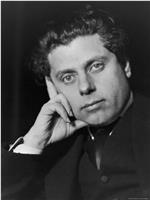Max Reinhardt Reinhardt

- 性别:男
- 星座:处女座
- 出生日期:1873-09-09
- 出生地:奥地利
- 职业:导演 / 演员 / 制片人
- 更多外文名:Maximilian Goldmann (本名)
Max Reinhardt简介
影人资料
Max Reinhardt (September 9, 1873 – October 30, 1943) was an Austrian-born theatre and film director, intendant, and theatrical producer. With his innovative stage productions, he is regarded as one of the most prominent directors of German-language theatre in the early 20th century. In 1920, he established the Salzburg Festival with the performance of Hugo von Hofmannsthal's Jedermann.Reinhardt was born Maximilian Goldmann in the spa town of Baden near Vienna, the son of Wilhelm Goldmann (1846–1911), a Jewish merchant from Stomfa, Hungary, and his wife Rachel Lea Rosi "Rosa" Goldmann (née Wengraf) (1851–1924). Having finished school, he began an apprenticeship at a bank, but already took acting lessons. In 1890, he gave his debut on a private stage in Vienna with the stage name Max Reinhardt (possibly after the protagonist Reinhard Werner in Theodor Storm's novella Immensee). In 1893 he performed at the re-opened Salzburg **** Theatre.[1] One year later, Reinhardt relocated to Germany, joining the Deutsches Theater ensemble under director Otto Brahm in Berlin.In 1918 Reinhardt purchased Schloss Leopoldskron castle in Salzburg, which had fallen into disrepair. While living in it for nearly 20 years, he painstakingly restored the castle; however he fled due to the Nazis' increasing anti-Semitic aggressions. The castle was seized following Germany's Anschluss annexation of Austria in 1938. After the war, the castle was restored to Reinhardt's heirs, and subsequently the home and grounds became famous as the filming site for the early scenes of the Von Trapp family gardens in the movie The Sound of Music.
